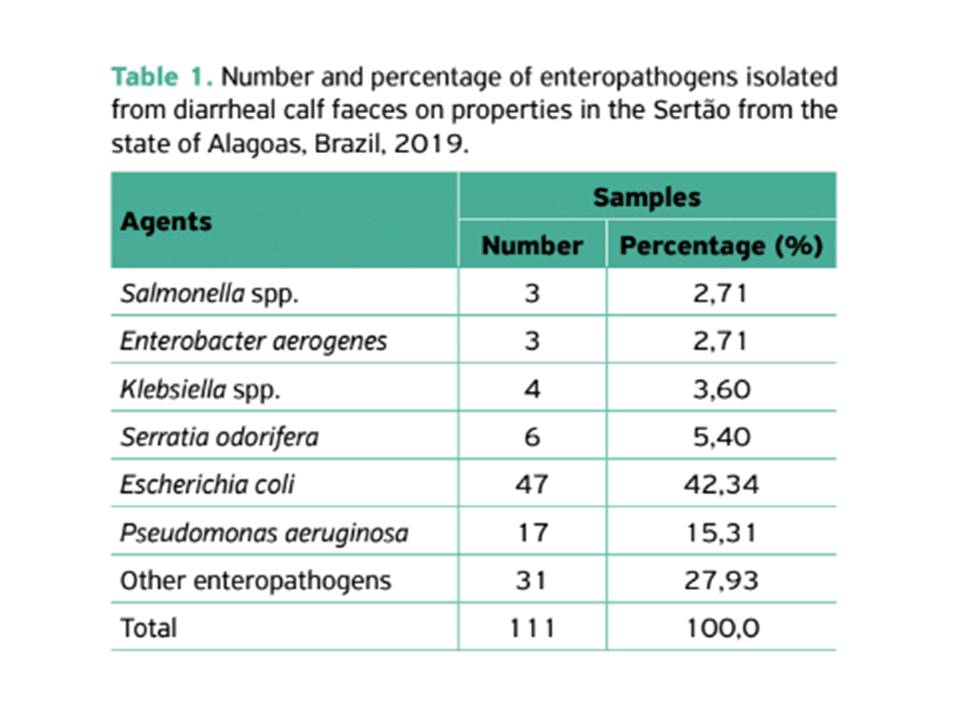Occurrence and antimicrobial resistance profile of Salmonella spp. in calves from the Mesoregion Sertão of Alagoas, Brazil
DOI :
https://doi.org/10.21708/avb.2021.15.1.9363Résumé
The objective of this study was to verify the occurrence of diarrhea and the isolation of strains of Salmonella spp. in diarrheal feces of calves from farms located in the backwoods from the state of Alagoas municipalities, and to characterize the in vitro resistance profile of Salmonella sp. isolated against conventional antimicrobials. The study was carried out with 431 calves from 10 to 90 days old, and 111 diarrheal fecal samples from these calves were analyzed. The samples were sown in enrichment broths and selective culture media and phenotypic and molecular characterization were made. 25.75% (111/431) of the animals had diarrhea. The presence of Salmonella sp. was evidenced in 13.33% (2/15) of the studied establishments. 2.71% (3/111) strains of Salmonella sp. have been isolated and have all been shown to be resistant to Cefotaxime and sensitive to Ciprofloxacin, Gentamicin, Amoxicillin, Ampicillin and Norfloxacin. The occurrence of Salmonella sp. and other infectious agents associated with diarrhea were confirmed in calves in the backwoods from the state of Alagoas. The antimicrobial potential of the tested drugs reinforces the importance of their responsible use in the fight against Salmonellosis in these animals, thus promoting the minimization of cases of bacterial resistance in Brazil and in the world.
Téléchargements

Téléchargements
Publié-e
Numéro
Rubrique
Licence
Autores que publicam na Acta Veterinaria Brasilica concordam com os seguintes termos: a) Autores mantém os direitos autorais e concedem à revista o direito de primeira publicação, com o trabalho simultaneamente licenciado sob a Licença Creative Commons Attribution que permite o compartilhamento do trabalho com reconhecimento da autoria e publicação inicial nesta revista. b) Autores têm autorização para assumir contratos adicionais separadamente, para distribuição não-exclusiva da versão do trabalho publicada nesta revista (ex.: publicar em repositório institucional ou como capítulo de livro), com reconhecimento de autoria e publicação inicial nesta revista. c) Autores têm permissão e são estimulados a publicar e distribuir seu trabalho online (ex.: em repositórios institucionais ou na sua página pessoal) a qualquer ponto antes ou durante o processo editorial, já que isso pode gerar alterações produtivas, bem como aumentar o impacto e a citação do trabalho publicado (Veja O Efeito do Acesso Livre).


 Esta obra está licenciada com uma Licença
Esta obra está licenciada com uma Licença 